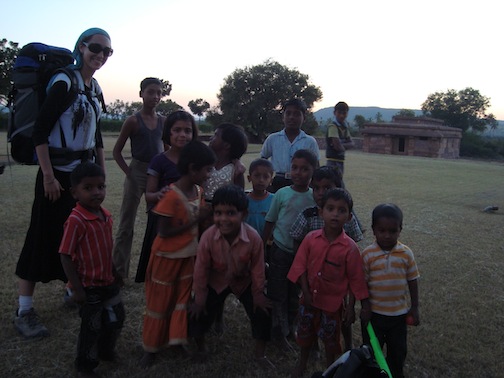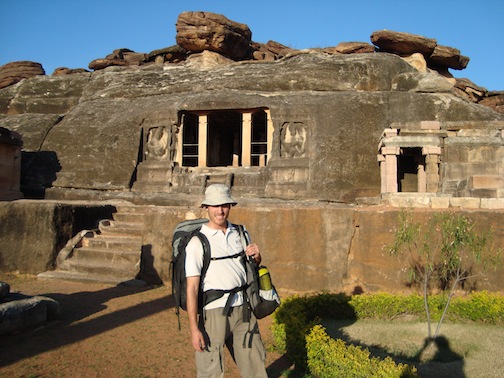Parshas Lech Lecha: Far From Family
A friend’s husband recently left her for 10 days to travel on business, leaving her with their two young children. Another friend’s husband left (also for business) for a couple of weeks, leaving her with a newborn. And Rabbi Ben left me not long ago to spend nearly 3 weeks traveling in Papua New Guinea.
While it’s never easy to be left a single parent, there was a big difference between me and my two friends. The first has her family here. When I saw her in Shul last Shabbos, she told me how one day, too exhausted to deal with dinner, she called up her mom and asked if she and the kids could crash there for a meal. The other friend also lives far from her family… but she lives with her in-laws, who have plenty of grandchildren. They’re always willing to help soothe a crying baby or to lend her a hand, even when their son isn’t around. When Rabbi Ben left me, I was really on my own. My parents and in-laws alike are halfway across the world and I can’t ask them for help when I’m tired or stressed or overdrawn.

It was really special when my parents were able to visit and spend some time with Akiva - It's hard living so far away!
Even without kids in the picture it’s hard to leave behind your home. Whether it’s your family or your friends (who are, as they say, “the family you choose for yourself”), you leave important people behind. I remember being in India, overwhelmed by the culture shock, and the only thing I wanted was to be able to talk to my family and friends and make some sense of things. It is hard to leave your family behind.
So imagine how hard it must have been for Avraham (Abraham, then Avram) to leave behind his family. Not only was he leaving them on a trip, but he was leaving them for good. To make matters worse, his father, Terach, had been the local idol salesman… and he had just done teshuva and come around to Avram’s way of thinking and worshipping One G-d. Avram knew that if he left his father, there was a strong likelihood he would go back to his old ways. To think that someone you really love and care about is going to do something harmful to themselves (even spiritually) if you leave them, you would not want to leave them.
It is hard to be without family around you. It is hard to leave behind the people you love and care about. It is even harder when you know those people rely on and are dependent on you. But sometimes it is what you must do, for yourself.
Avram had to leave his family behind in order to become Avraham. He had to grow spiritually and he could no longer do so in that space. The challenge of being on his own made him grow spiritually.
So, too, when we strike out on our own and leave behind our support systems, we are forced to grow. I cannot rely on my family for help with my baby when Rabbi Ben is away. I have to find a way to manage on my own. It makes me grow.
Although, of course, it is nice to have family around! And if you do have your family around you this Shabbos, be grateful for it and thank them – tell them how much you appreciate them. And if your family are far, call them or send them a message before Shabbos just to tell them you are thinking of them.
Shabbat Shalom!
Read more on Parshas Lech Lecha: The Journey Without, The Journey Within
Read More







